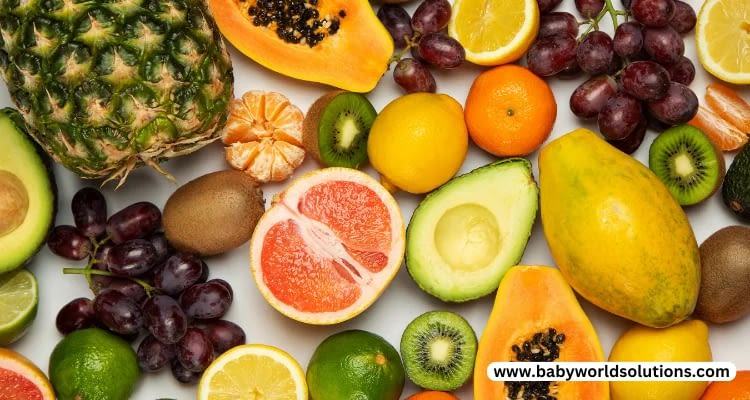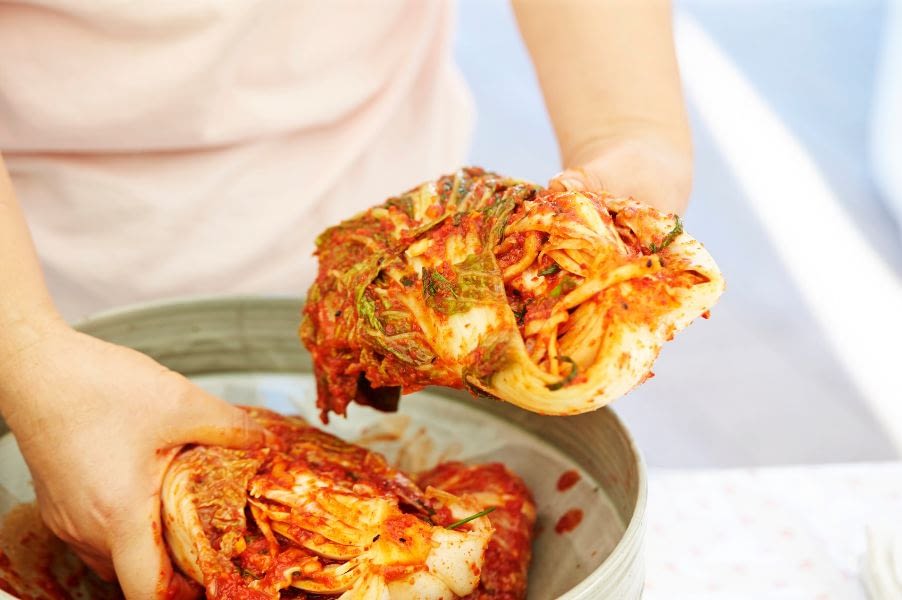Embarking upon the journey of motherhood can be incredibly rewarding yet equally challenging, particularly when it comes to breastfeeding. A common concern for many new mothers is how their diet may affect their baby, especially with the potential for colic.
Recognizing Signs of Colic in Infants
Colic refers to severe, often fluctuating pain in the abdomen associated with gas accumulation or obstruction in the intestines. This condition is common among infants and can result in extended periods of distress and crying. Recognizing these signs early is crucial for managing and mitigating the impact of colic on your baby’s comfort and overall health.
Common Symptoms and Behaviors
- Intense Crying: Colic often results in episodes of crying that last 3 hours or more a day and happen more than three days a week for at least three weeks.
- Predictable Timing: Crying episodes often occur in the late afternoon or evening.
- Physical Discomfort: Infants may clench their fists, arch their back, or have tense abdominal muscles during a crying episode.
- Feeding and Sleeping Disruptions: Colic can interfere with the baby’s regular eating and sleeping patterns.
How Diet Can Impact Colic
Diet plays a significant role in managing colic symptoms in infants. The mother’s diet, especially when breastfeeding, can significantly influence the baby’s comfort. Scientific research suggests that certain foods the mother consumes can affect a baby’s colic episodes.
Let’s shed light on the foods to eat while breastfeeding to avoid colic and gas in your little one. Through a blend of expert advice and scientific research, we’ll navigate this complex topic together, helping to make your breastfeeding journey smoother.
Importance of nutrition while breastfeeding
Nutrition plays a pivotal role during breastfeeding as the nutrients a mother consumes are passed on to the baby via breast milk. A balanced diet ensures the baby receives the necessary vitamins, minerals, and macronutrients for growth and development.
Moreover, the mother’s diet can impact the taste of her breast milk, influencing the baby’s food preferences in the future. However, certain foods may cause discomfort or allergic reactions, leading to conditions like colic.
Hence, understanding which foods to eat and which to avoid while breastfeeding is of utmost importance, not only for the mother’s well-being but also for the health and comfort of the baby.
Importance of a Balanced Diet
A balanced diet is crucial for nursing mothers to provide the necessary nutrients for their health and their breastfeeding baby’s health.
Nutrient-rich foods like fruits, vegetables, grains, lean protein, and dairy products contain vital vitamins and minerals that directly impact the quality of breast milk. These nutrients contribute to the baby’s growth, immune function, and cognitive development. However, the mother’s nutrition also impacts her energy levels, immune function, and overall wellness.
It’s not just about consuming enough food; it’s about choosing the right food. Make sure to include a variety of foods in your diet to ensure you and your baby are getting a balance of nutrients. Balancing your diet nourishes your body and sets a strong foundation for your baby’s health.
Nutrient requirements for breastfeeding mothers
Regarding breastfeeding, the mother’s nutrient requirements are slightly higher than during pregnancy. Lactating mothers need an extra 500 calories daily to produce enough milk for their babies. Additionally, they require increased levels of nutrients such as protein, calcium, iron, and vitamin B6.
Furthermore, nursing mothers must stay hydrated by drinking fluids throughout the day. Dehydration can affect milk production and lead to fatigue, making consuming enough water and other fluids important.
Benefits for the baby’s digestion and overall health
Ingesting fiber-rich foods can significantly contribute to a baby’s digestive health as these nutrients are passed to the baby through breast milk. These high-fiber foods help promote regular bowel movements and prevent constipation in the baby.
Additionally, the consumption of probiotic-rich foods can enhance the baby’s gut flora, promoting a healthy digestive system and potentially reducing incidences of colic.

Breastfeeding diet for colic: Foods to eat when breastfeeding to calm baby
Now that we understand the importance of a balanced diet while breastfeeding, let’s dive into specific foods that can help prevent colic in babies.
• Lean proteins:
Lean protein sources such as chicken, fish, and legumes provide essential amino acids for the baby’s growth and development. These proteins also help produce breast milk, making them a vital part of a breastfeeding mother’s diet.
• Fruits and vegetables:
They are rich in essential nutrients such as vitamins, minerals, antioxidants, and fiber that can benefit both the mother and baby. However, nursing mothers should avoid gas-inducing vegetables like broccoli, cauliflower, and cabbage, as they can cause gas in the baby’s digestive system.
• Whole grains:
Whole-grain foods like oats, brown rice, and quinoa are excellent sources of complex carbs for sustained energy. They also contain essential nutrients like iron, B vitamins, and fiber.
• Probiotic-rich foods:
These are microorganisms that provide numerous health benefits by promoting a healthy gut. Consuming probiotic-rich foods like yogurt, kefir for breastfeeding, and sauerkraut can help regulate the digestive system of both mother and baby, potentially reducing colic episodes.
Best foods to eat while breastfeeding to avoid colic
Yogurt
It is a great source of protein and probiotics that aid digestion. Additionally, it is high in calcium, a vital nutrient for mothers and babies. However, some babies may be sensitive to cow’s milk proteins, so if colic symptoms persist, it may be beneficial to try a dairy-free diet.
Cheese
It is another dairy product that is rich in protein and calcium. Opt for mild cheeses as they are easier on the baby’s digestive system.
Salmon
Salmon is a source of protein and DHA, an Omega-3 fatty acid. DHA is essential for fetal nervous system development and may help prevent colic.
Chia Seeds
They have Omega-3 fatty acids, which can be easily incorporated into a breastfeeding mother’s diet into yogurt, smoothies, or oatmeal.
Oranges
Oranges are high in Vitamin C and antioxidants, which can boost the immune system for both mother and baby. They also provide hydration and a delicious treat for nursing mothers.
Strawberries
Strawberries are also rich in Vitamin C and dietary fiber, aiding digestion and alleviating colic symptoms.
Oats
Oats are high in fiber and can help promote regular bowel movements, reducing the risk of digestive discomfort for the baby. They are also a great source of energy for breastfeeding mothers.
Avocado
They are a great source of fiber, vitamins, minerals, and healthy fats that can be easily incorporated into any meal or snack.
Each baby is unique, and what works for one may not work for another. It’s always best to monitor your baby’s reactions to different foods and consult a healthcare professional if you have any concerns about your diet or symptoms.
4 Things to consider: Colic diet for breastfeeding moms
Which apple cider vinegar is good for breastfeeding mom?
When choosing apple cider vinegar for breastfeeding moms, it’s crucial to select an organic, unpasteurized, and unfiltered variety, often referred to as “with the mother.” Bragg’s Organic Raw Apple Cider Vinegar is one of the most popular and trusted brands, but several high-quality alternatives are available.
This apple cider vinegar retains all the beneficial bacteria, enzymes, and proteins, making it more nutritious. However, moderate your intake due to its high acidity, which could affect your baby’s digestion when passed through breast milk.
Can you have kombucha while breastfeeding?
Kombucha, a fermented tea rich in probiotics and antioxidants, is often touted for its health benefits. However, when it comes to breastfeeding, mothers should exercise caution. While kombucha can aid in maintaining a healthy gut microbiome with its probiotics, it also contains a small amount of alcohol due to fermentation.
This could potentially pass into breast milk and affect the baby. It is recommended to limit intake and always opt for kombucha with the lowest alcohol content. Additionally, excessive kombucha consumption could lead to a fussy or irritable baby due to its caffeine content.
Can I eat mushrooms while breastfeeding?
Yes, breastfeeding mothers can generally eat mushrooms without any issues. Mushrooms are a nutritious addition to a breastfeeding mother’s diet, as they are rich in protein, fiber, vitamins, and minerals. However, it’s important to remember that everyone’s body reacts differently to certain foods. While some babies might not respond to mushrooms in their mother’s diet, others may experience gassiness or discomfort.
Therefore, gradually introducing new foods like mushrooms into your diet and monitoring your baby’s reaction is advisable. If you notice any adverse reaction, such as increased fussiness or changes in bowel movements, you should reduce or eliminate mushrooms from your diet.
Can I take digestive enzymes while breastfeeding?
They are generally taking digestive enzymes while breastfeeding, which is considered safe. Enzymes like amylase, lipase, and protease break down carbs, fats, and proteins, aiding digestion and nutrient absorption.
However, it’s essential to understand that everyone’s body is unique, and your response to these supplements may differ. Therefore, as a breastfeeding mother, before starting any new supplements, including digestive enzymes, it’s crucial to consult with a healthcare professional. Based on your health history and current situation, they can offer personalized advice to ensure your and your baby’s safety and well-being.

Main Foods that cause colic in babies
While most foods are safe for breastfeeding mothers to consume in moderation, some may trigger colic or discomfort in babies. Here are some foods that breastfeeding mothers may want to avoid or limit in their diet:
Caffeine
Caffeine is a stimulant that can easily pass into breast milk, which may cause your baby to become irritable and have trouble sleeping. High amounts of caffeine intake by the mother can lead to a colicky baby. This includes caffeine in coffee, tea, soda, chocolate, and certain medications.
Dairy Products
Dairy products are a common trigger for colic in breastfeeding babies. This is particularly true if your baby has lactose intolerance or a dairy protein allergy. Symptoms can include excessive gas, bloating, fussiness, and skin reactions. If you suspect a dairy intolerance, consider eliminating dairy products for a few weeks to see if your baby’s symptoms improve.
Spicy Foods
Spicy foods may also contribute to colic. Certain spices can upset a baby’s immature digestive system, leading to discomfort and crying. If you’ve consumed a lot of spicy food and your baby seems uncomfortable or has a about of colic, you should reduce or eliminate such foods such as kimchi from your diet.
Gas-Inducing Foods
Certain foods to avoid while breastfeeding to prevent gas include beans, broccoli, onions, cabbage, and other cruciferous vegetables. These foods are known to cause gas and could potentially lead to colic in your baby. If your baby seems colicky after eating these foods, it may be worth reducing your intake to see if it makes a difference.
Identifying and avoiding these common triggers can help reduce your baby’s colic symptoms.
17 Foods to Avoid While Breastfeeding to Prevent Gas
- Alcohol: As mentioned before, alcohol can pass into breast milk and negatively affect your baby.
- Caffeine: Excessive caffeine intake can lead to colicky babies or disrupt sleep patterns.
- High Mercury Fish: To avoid exposure to high levels of mercury, it’s best to minimize or avoid fish such as tuna, shark, and swordfish.
- Processed Meats: They often contain preservatives and additives that can harm your baby’s health.
- Spicy Foods: These may cause discomfort for your baby and contribute to colic symptoms.
- Soft Cheeses: These may contain bacteria that could potentially harm your baby.
- Peanuts: If there is a family history of allergies, it’s best to avoid peanuts to reduce the risk of an allergic reaction in your baby.
- Citrus Fruits: As mentioned before, the acidity in these fruits may cause fussiness or rashes.
- Soy Products: Some babies are sensitive to soy, so minimizing or avoiding these products is best.
- Garlic: Garlic can sometimes cause an unpleasant taste in breast milk, which may affect your baby’s feeding habits.
- Wheat: Some babies may be sensitive to wheat and experience digestive issues and discomfort.
- Dairy Products: As mentioned before, dairy can trigger colic symptoms in some babies.
- Nuts: If there is a family history of allergies, it is best to avoid nuts to reduce the risk of an allergic reaction in your baby.
- Eggs: Eggs may cause digestive issues or allergies in some babies.
- Sardines and Anchovies: These fish are high in salt and may affect your baby’s health.
- Chocolate: Chocolate contains caffeine and may cause fussiness or colic symptoms.
- Onion: Onions can sometimes cause an unpleasant taste in breast milk, which may affect your baby’s feeding habits.
Hydration and Breastfeeding
Breastfeeding requires adequate hydration for the health of both mother and baby. Here, we look at the crucial link between hydration and milk supply and provide tips to help breastfeeding mothers stay adequately hydrated.
The Link Between Hydration and Milk Supply
Breast milk is approximately 90% water, which underlines the importance of maintaining good hydration levels for lactating mothers. While dehydration doesn’t directly impact the quantity of breast milk produced, it can affect its quality, potentially decreasing the concentration of nutrients in the milk. Moreover, inadequate fluid intake can lead to maternal health complications such as urinary tract infections, constipation, and fatigue, which can indirectly impact breastfeeding.
Tips for Staying Hydrated While Breastfeeding
- Drink Water Frequently: Aim for at least eight glasses of water daily, but remember that you may need more depending on your body weight, activity level, and climate.
- Keep Water Handy: Always have a glass of water or a water bottle nearby, especially during nursing sessions.
- Eat Hydrating Foods: Increase your daily water intake by consuming fruits and vegetables rich in water, like cucumbers, watermelon, and oranges.
- Limit Caffeine and Alcohol: Both can lead to dehydration and have other potential adverse effects on breastfeeding.
- Listen to Your Body: When you feel thirsty, it means your body needs more water. Don’t disregard this signal.
Remember, staying well-hydrated is essential for your health, the quality of your breast milk, and, by extension, your baby’s health.
Additional tips for maintaining a balanced diet while breastfeeding
- Make sure to eat meals: To meet your increased nutrient requirements, regularly eating throughout the day, including three meals and snacks, is essential.
- Choose nutrient-dense snacks: Snacks are a great way to boost energy and nutrient intake. Opt for healthy options like fruits, nuts, yogurt, or hummus with vegetables.
- Take a multivitamin: Even with a well-balanced diet, meeting all your nutrient needs while breastfeeding may be challenging. Taking a postnatal multivitamin can help fill any gaps in your diet.
- Don’t restrict calories: While breastfeeding may burn extra calories, it’s not the time to limit your food intake. Your body needs adequate fuel to produce quality breast milk and support your health.
- Listen to your body: Every mother and baby is unique, so how certain foods make you and your baby feel is essential. If you notice any reactions or discomfort in your baby after breastfeeding, consider eliminating or limiting that food from your diet and consult with a healthcare provider if needed.
- Practice moderation: While it’s essential to include a variety of wholesome foods in your diet, it’s also okay to indulge in treats occasionally. Enjoy your food and not stress over being perfect with every meal. Overall, moderation is key.
Testimonials from Mothers
Here are some real-life experiences of mothers who managed their babies’ colic through dietary changes:
- Sarah, Ohio: “When my son was three months old, he started experiencing bouts of intense crying every night. His pediatrician suggested it might be colic and recommended that I examine my diet since I was breastfeeding. After a food diary analysis, I noticed a correlation between my consumption of dairy products and his crying episodes. I switched to a dairy-free diet, and the improvement was noticeable within a week. I’ve been dairy-free since his colic symptoms have significantly reduced.”
- Aisha, California: “My daughter, a formula-fed baby, suffered from severe colic symptoms. After trying various remedies, our pediatrician suggested changing her formula. We switched to a soy-based formula, and I’m grateful for the change it brought. She’s far more comfortable now, and her colic symptoms have subsided.”
- Rachel, New York: “I was surprised when my pediatrician suggested that my diet could be causing my baby’s colic symptoms. I consumed many caffeinated beverages, and they suggested I reduce my intake. I did, and I also increased my water consumption. The result was a less fussy, more comfortable baby. It was a big eye-opener for me about the impact of my diet on my baby’s well-being.”
- Priya, Texas: “My husband and I are vegetarians, and my diet includes a lot of broccoli and beans. After my baby was diagnosed with colic, I researched and found that these foods could cause gas. Modifying my diet wasn’t easy, but it paid off. The decrease in my baby’s colic symptoms was evident and swift.”
Conclusion: Foods to eat while breastfeeding to avoid colic
A mother’s diet prevents and manages colic in breastfed infants. A mother’s diet directly impacts the composition of her breast milk, which can affect the infant’s digestion and potential for colic episodes. Foods known to produce gas or cause allergies, such as dairy products, caffeine, broccoli, and beans, when consumed by the mother, can exacerbate colic symptoms in the baby.
Conversely, a balanced and thoughtful diet can alleviate these symptoms. Hydrating foods and regular water intake aid in producing high-quality breast milk and maintaining the mother’s overall health. Moreover, avoiding or reducing foods that cause gas can cause a noticeable decrease in infant colic symptoms.
Breastfeeding mothers need to be acutely aware of their dietary choices and the potential implications for their breastfeeding infants. It’s recommended that mothers maintain a food diary to track possible correlations between their diet and the baby’s comfort levels. Consulting with healthcare professionals for personalized dietary advice can be invaluable in managing colic effectively.
1 Visit today





